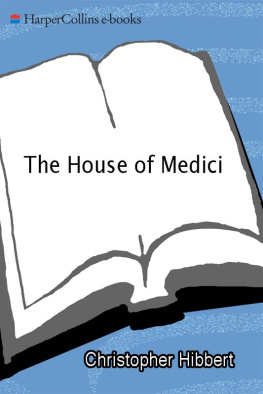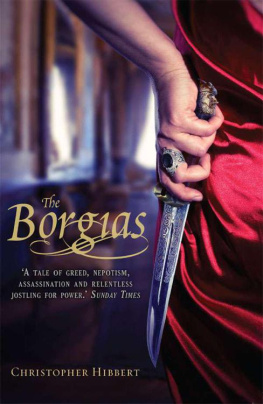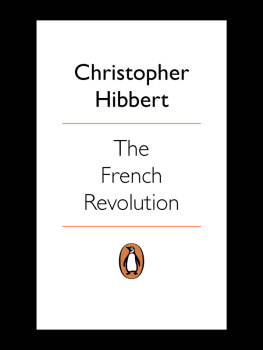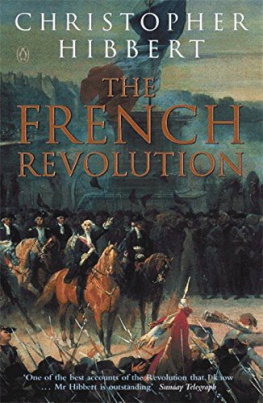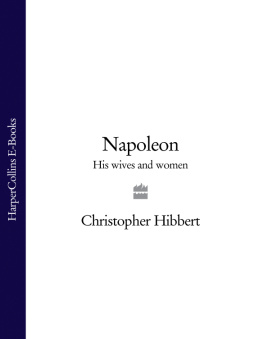This edition is published by FRIEDLAND BOOKS www.pp-publishing.com
To join our mailing list for new titles or for issues with our books friedlandbooks@gmail.com
Or on Facebook
Text originally published in 1961 under the same title.
Friedland Books 2017, all rights reserved. No part of this publication may be reproduced, stored in a retrieval system or transmitted by any means, electrical, mechanical or otherwise without the written permission of the copyright holder.
Publishers Note
Although in most cases we have retained the Authors original spelling and grammar to authentically reproduce the work of the Author and the original intent of such material, some additional notes and clarifications have been added for the modern readers benefit.
We have also made every effort to include all maps and illustrations of the original edition the limitations of formatting do not allow of including larger maps, we will upload as many of these maps as possible.
CORUNNA
CHRISTOPHER HIBBERT
TABLE OF CONTENTS
Contents
TABLE OF CONTENTS
ABOUT THE AUTHOR
Christopher Hibbert was born in Leicestershire in 1924 and educated at Radley and Oriel College, Oxford. He served as an infantry officer during the war, was twice wounded and was awarded the Military Cross in 1945. Described by Professor J. H. Plumb as a writer of the highest ability and in the New Statesman as a pearl of biographers, he is, in the words of The Times Educational Supplement , perhaps the most gifted popular historian we have. His much acclaimed books include the following , The Destruction of Lord Raglan (which won the Heinemann Award for Literature in 1962); Benito Mussolini ; The Court at Windsor ; The Making of Charles Dickens; London: The Biography of a City ; The Dragon Wakes : China and the West 17931911 ; George IV ; The Rise and Fall of the House of Medici ; Edward VII : A Portrait ; The Great Mutiny : India 1857; The French Revolution ; The Personal History of Samuel Johnson ; Africa Explored ; Garibaldi and His Enemies ; Rome : The Biography of a City ; The Virgin Quee n: The Personal History of Elizabeth I; Florence: The Biography of a City, and Nelson: A Personal History.
PREFACE
One of the best remembered poems in the English language has served to keep alive the memory of Sir John Moore and of his burial at Corunna on 17 th January, 1809. The story of the battle which he fought on the previous day and of the short campaign and horrifying retreat which preceded it is not, of course, so well known. A book specifically devoted to these events has not been written before, although numerous biographies, histories of the Peninsular War, diaries, memoirs, letters and regimental histories have made them familiar in a general way.
For their help in finding the various authorities on which I have based my book I am grateful to Mr. D. W. King, the War Office Librarian and his staff; Brigadier John Stephenson and the librarians staff at the Royal United Service Institution; Miss Susanna Fisher of the manuscript department of the National Maritime Museum; and the staffs of the British Museum, the Public Record Office, the London Library and the Codrington Library. A note on these authorities and a list of them will be found at the end of the book.
I want also to thank Miss Frances Ryan for helping me in my researches, and Major Freddie Myatt for helping me with the maps and appendices and for having read the proofs.
CHRISTOPHER HIBBERT
ILLUSTRATIONS
Sir John Moore by Sir Thomas Lawrence by courtesy of the National Portrait Gallery, London
Alexander Mackenzie Fraser, from an engraving by Henry Meyer after a painting by Richard Cosway by courtesy of the Parker Gallery, London
The Hon. John Hope from a contemporary engraving by courtesy of the Trustees of the British Museum
Lord Paget, later Marquess of Anglesey by Sir Thomas Lawrence by courtesy of the Trustees of the Victoria & Albert Museum ( from the Wellington Museum, Apsley House )
Sir David Baird by Sir David Wilkie by courtesy of the National Portrait Gallery, London
Jean-Baptiste Franceski from a contemporary engraving
Lord William Bentinck from an engraving after a painting by Sir Thomas Lawrence
by courtesy of the Trustees of the British Museum
William Carr Beresford by Sir Thomas Lawrence by courtesy of the Trustees of the Victoria & Albert Museum ( from the Wellington Museum, Apsley House )
Nicolas Jean de Dieu Soult, Duke of Dalmatia from an engraving by Henri Grvedon
Pedro Caro y Suredo, Marqus de la Romana from an engraving by A. Cardon
Alexandre Berthier from a contemporary engraving
The Convention of Cintra, a Portuguese Gambol for the Amusement of John Bull engraved from a drawing by G. Woodward, 1809 by courtesy of the Trustees of the British Museum
Soldiers on the March from a caricature by Thomas Rowlandson by courtesy of the Trustees of the British Museum
The brigades under Major-General Fraser crossing the River
Tagus near Villa Velha from an aquatint after an eyewitness sketch by the Rev. William Bradford by courtesy of the Trustees of the British Museum
A snow-covered pass in Galicia from a sketch by Sir Robert Ker Porter by courtesy of the Trustees of the British Museum
The road to Corunna from a sketch by Sir Robert Ker Porter by courtesy of the Trustees of the British Museum
Corunna Harbour at the time of the explosion on 13 January 1809 from a sketch by Sir Robert Ker Porter by courtesy of the Trustees of the British Museum
View of Corunna during the battle by H. Lecomte Hulton Deutsch Collection
Battle of Corunna, 16 January 1809 from an aquatint by M. Duborg, after a contemporary drawing by W. Heath Hulton Deutsch Collection
The Burial of Sir John Moore Hulton Deutsch Collection
MAPS
The Iberian Peninsula
The advance of the British Forces from Lisbon to Salamanca
The advance of the British Forces from Salamanca to Sahagun
The retreat of the British Forces from Sahagun to Vigo and Corunna
The Battle of Corunna
PART ONE Lisbon
1 Beginning of the War
The English declare they will no longer respect neutrals on the sea; I will no longer recognise them on land.Napoleon Buonaparte
IT WAS insufferably hot. For five days now the landing craft, packed with soldiers sitting four by four on the thwarts, had been plunging violently through the Atlantic breakers towards the burning sand of the beach. There had been a storm the first night, but the water had soon soaked away and the shore, dried by the fierce and constant sunlight, was parched again.
Groups of thirsty sailors, the white surf frothing round their thighs, stood naked at the waters edge, watching the heavily loaded boats sweep forward through the spray. In the instant that the waters rushed back under the foam of a broken wave, the sailors ran out towards the boats to hurl a rope towards them. More often than not the end of the rope fell short into the water or sometimes a sailor lost his balance in the swirling currents and was caught up and swept back by the next great roll of the sea. Sitting with their packs and muskets held tightly between their knees, the soldiers waited nervously for the jerk that would tell them that the rope had been caught and the slack taken in, and then the boat would go scudding over the shallow water to the safety of the beach.






